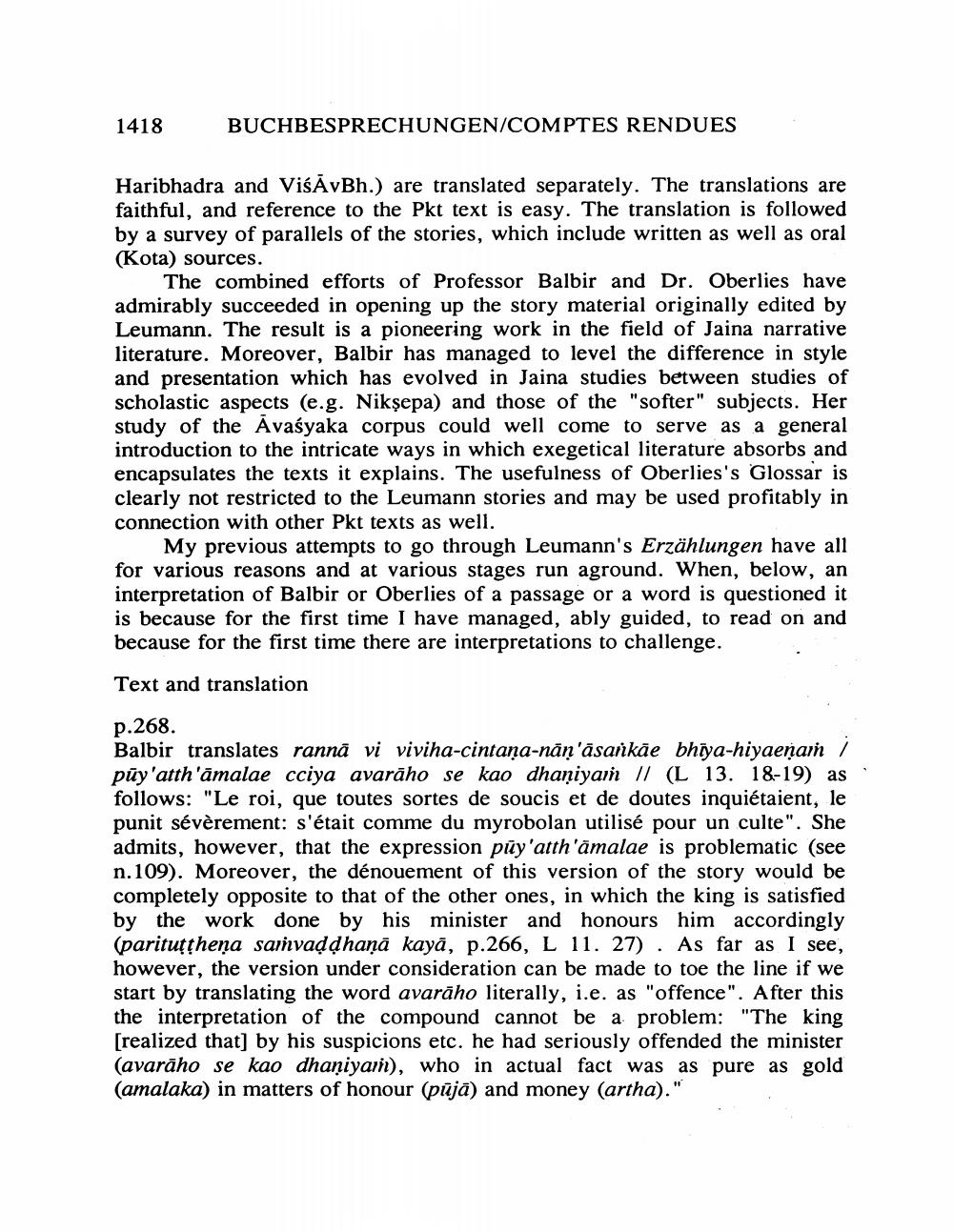Book Title: Buchbesprechungen Comptes Rendues Author(s): Nalini Balbir Publisher: Nalini Balbir View full book textPage 4
________________ 1418 BUCHBESPRECHUNGEN/COMPTES RENDUES Haribhadra and ViśĀvBh.) are translated separately. The translations are faithful, and reference to the Pkt text is easy. The translation is followed by a survey of parallels of the stories, which include written as well as oral (Kota) sources. The combined efforts of Professor Balbir and Dr. Oberlies have admirably succeeded in opening up the story material originally edited by Leumann. The result is a pioneering work in the field of Jaina narrative literature. Moreover, Balbir has managed to level the difference in style and presentation which has evolved in Jaina studies between studies of scholastic aspects (e.g. Nikṣepa) and those of the "softer" subjects. Her study of the Avaśyaka corpus could well come to serve as a general introduction to the intricate ways in which exegetical literature absorbs and encapsulates the texts it explains. The usefulness of Oberlies's Glossar is clearly not restricted to the Leumann stories and may be used profitably in connection with other Pkt texts as well. My previous attempts to go through Leumann's Erzählungen have all for various reasons and at various stages run aground. When, below, an interpretation of Balbir or Oberlies of a passage or a word is questioned it is because for the first time I have managed, ably guided, to read on and because for the first time there are interpretations to challenge. Text and translation p.268. Balbir translates rannā vi viviha-cintana-nān'āsarkāe bhiya-hiyaenam / pūy'atth'āmalae cciya avarāho se kao dhaniyam || (L 13. 18-19) as follows: "Le roi, que toutes sortes de soucis et de doutes inquiétaient, le punit sévèrement: s'était comme du myrobolan utilisé pour un culte". She admits, however, that the expression püy'atth'āmalae is problematic (see n. 109). Moreover, the dénouement of this version of the story would be completely opposite to that of the other ones, in which the king is satisfied by the work done by his minister and honours him accordingly (parituţtheņa sainvaddhaņā kayā, p.266, L 11. 27). As far as I see, however, the version under consideration can be made to toe the line if we start by translating the word avarāho literally, i.e. as "offence". After this the interpretation of the compound cannot be a problem: "The king [realized that] by his suspicions etc. he had seriously offended the minister (avarāho se kao dhaniyain), who in actual fact was as pure as gold (amalaka) in matters of honour (pūjā) and money (artha)."Page Navigation
1 2 3 4 5 6 7 8 9 10 11 12 13 14 15
